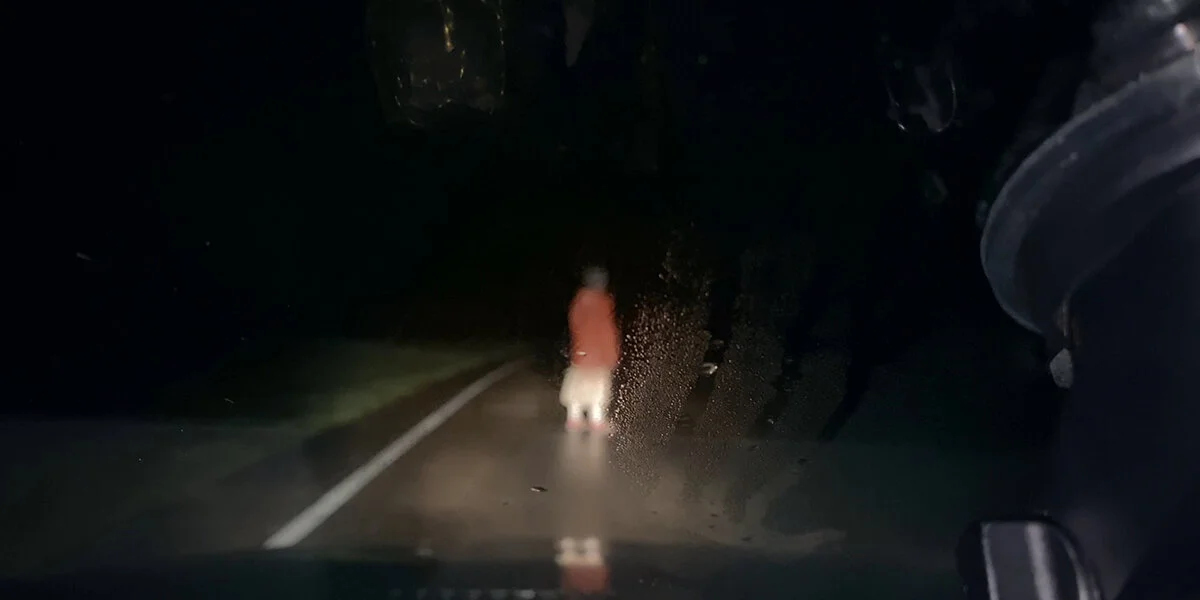Review by Zach Dennis
Evoking past staples of the found footage genre, such as Blair Witch Project or Cloverfield, Dashcam is one of the first examples of a 2020 zeitgeist movie – and it isn’t igniting a lot of inspiration in the future of movies about the current “moment.”
This version of found footage horror comes via a YouTube stream with streamer Annie Hardy (playing a version of herself here). As she makes her way from the “restrictions” of the United States to London, Hardy vamps about her anti-vaccination views, calls people cucks and libtards and puts on her Make America Great Again hat a number of times.
Once in London, she breaks into the home of a former bandmate named Stretch (Amar Chadha-Patel), who seems to accept the situation at first until Annie’s behavior becomes more and more unhinged, and she eventually steals his car and intercepts an Uber Eats delivery meant for Stretch after he leaves his phone in his car.
At the delivery location, Annie finds a restaurant that’s entirely empty except for one woman who asks her to deliver a sickly lady named Angela (Angela Enahoro) to an address. True to form, Annie parades the mission on her YouTube stream to the onslaught of comments from her loyal followers until it’s clear that something is deeply wrong with Angela that reaches farther than the coronavirus.
A lot of movies have already attempted to meet the moment when it comes to the 2016 election and American politics. With Dashcam, director Rob Savage seems to want to pull horror from it. I’m not sure if the goal is to constantly be rooting for your main character to get abducted by the creatures attacking her but if so, he succeeds.
There’s nothing wrong with having this character as the lead, but it also seems like Savage doesn’t seem interested in doing anything with it. Annie is despicable, hateful, and frequently cruel in ways that somehow supersede politics. By the end, it felt like Savage and Hardy wanted to revel in the debautchery of this character in a way that will immediately elicit a response on either side of the aisle for a viewer, but that seems to be the extent of their ambition with Annie and her politics.
As a found footage movie, it works fine. The conceit of her filming all of this while on her live-stream seems to be a natural progression of the genre, though the Skype conceit from Unfriended at least felt like it wanted to engage with the platform itself more than this did. Savage has a rolling comments thread from the people watching Annie throughout the film, but Dashcam is also not always “live” and will sometimes cheat with its video conceit.
By the end, the whole experience is so taxing – between the alt-right streamer personality and the on-and-off conceit – that you’re just excited to be off the ride. Then Dashcam brings you back in to its obnoxious space as Annie proceeds to rap through the credits. By that point, I was most jealous of all the people killed by the creatures. At least they were spared the most egregious horror.

